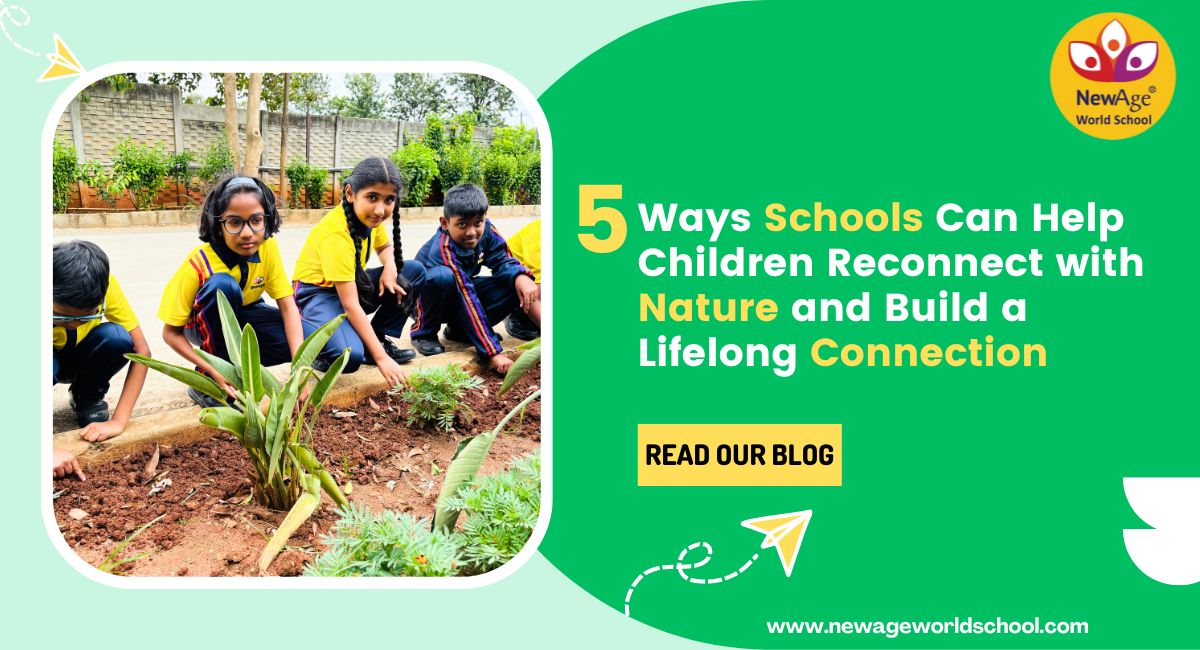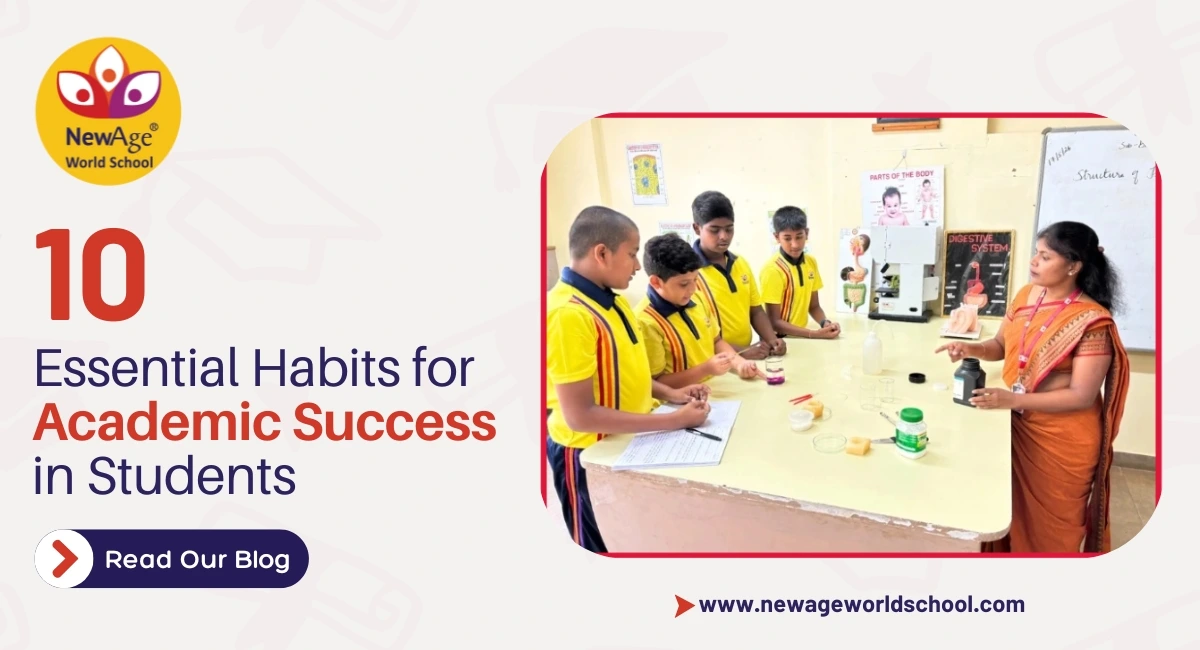5 Ways Schools Can Help Children Reconnect with Nature and Build a Lifelong Connection

Table of content
Introduction
1. Bring Nature into the Classroom
2. Organize Field Trips to Natural Places
3. Design Outdoor Spaces for Play and Learning
4. Introduce Gardening as an Extracurricular Activity
5. Encourage Environmental Education in Schools
The Long-Term Benefits of Reconnecting with Nature
Conclusion
Introduction
In today's fast-paced world, children spend most of their time indoors, glued to screens or confined within the walls of their homes and schools. It is rare for children to experience the outdoors the way they should, leading to missed opportunities for children's mental and physical development. Schools, a crucial part of a child's daily routine, have a unique opportunity to reconnect children with nature, helping them grow more balanced and holistically. Reintroducing nature into their lives can lead to improved physical and mental health.
How exactly can schools help children get closer to nature? Let us explore five simple ways to make a big difference in connecting children with nature in school.
1. Bring Nature into the Classroom
One of the easiest ways to introduce nature to children is to bring it inside the classroom. Schools can place small plants on windowsills or create a dedicated "plant corner" in the classroom. Allowing students to take turns watering and caring for these plants helps them feel connected to nature, even within the confines of a classroom. This strategy introduces nature in classrooms and also adds a fresh atmosphere to what would otherwise be a typical learning space.
By nurturing plants, students develop a sense of responsibility and get a break from the digital world. It is a calming experience and offers a little escape for children often overwhelmed by academics. Plus, studies show that the presence of plants can significantly enhance a child's concentration and productivity in school.
Some of the best ICSE schools in North Bangalore have already implemented this approach, making the classroom a greener, more nurturing environment for students.
2. Organize Field Trips to Natural Places
Getting out of the classroom and exploring the natural world firsthand can be an exciting way for children to bond with nature. Schools can organize field trips to parks, botanical gardens, or nearby forests where children can observe plants, trees, and animals. These trips can align with science or biology lessons, making it a form of nature-based education.
Nature-based field trips allow children to connect the lessons they learn in class with the real world. They can see how ecosystems function, learn about different species of animals, and understand the importance of protecting the environment. It is also an opportunity for stress relief for children through nature, as spending time outside has proven to reduce anxiety and increase happiness.
Primary schools in North Bangalore that take students on field trips offer them the chance to get fresh air, soak in sunlight, and experience the wonders of the natural world firsthand.
3. Design Outdoor Spaces for Play and Learning
For schools that are fortunate enough to have extra space, creating a natural outdoor area can make a huge difference in the lives of children. Schools with large playgrounds should integrate natural elements like trees, flower beds, or small vegetable gardens. These outdoor spaces can double as areas for both play and education.
Having access to natural outdoor environments encourages independent playtime for children, which is important for developing creativity, problem-solving skills, and social abilities. Children allowed to run around and interact with nature during breaks are also more likely to exhibit physical fitness for children.
Even if schools do not have the luxury of large spaces, they can still incorporate outdoor learning sessions where children can sit under the trees and learn from nature. Children learning through nature in such a setting tend to perform better academically and show improved behavioural responses.
For schools aiming to promote child development creatively, check out these insights on The Vital Role of Play in Child Development, highlighting the significant benefits of unstructured outdoor play.
4. Introduce Gardening as an Extracurricular Activity
Gardening can be an excellent way to help children reconnect with nature. Schools can incorporate gardening as an extracurricular activity, where students are taught how to plant seeds, water them, and nurture them into full-grown plants. This hands-on activity helps children understand the importance of nature and the patience it requires.
Gardening fosters a child's curiosity and can lead to a better understanding of the natural cycles of life. It also brings a sense of achievement when they see the fruits of their labour. Plus, spending time digging in the dirt and tending to plants offers both physical exercise and emotional satisfaction.
In schools like NewAge World School programs emphasizing gardening alongside education can have a lasting impact, encouraging children to take pride in nurturing life around them.
5. Encourage Environmental Education in Schools
Beyond just outdoor activities, schools need to include environmental education in schools. Educating children about their environment and the importance of nature conservation can help instill values that last a lifetime. Schools can introduce eco-friendly practices, such as recycling programs, tree-planting days, or "green" projects where students develop ways to reduce waste.
Incorporating nature and child development into the school curriculum ensures children understand how their actions affect the environment. It is about physical interaction with nature and understanding the broader impact on the world. Encouraging them to think about nature's role in their lives helps them form a strong emotional connection that will motivate them to be responsible citizens.
For an example of how schools can build leadership skills while promoting environmental awareness, consider 5 Extracurricular Activities that Promote Leadership.
The Long-Term Benefits of Reconnecting with Nature
Helping children reconnect with nature does not just benefit them in the short term. Over time, children who develop a relationship with nature are more likely to lead healthier, happier lives. Nature has a calming effect on the mind, improving physical and mental health and relieving stress, especially for school-aged children constantly under academic pressure.
By providing these natural experiences, schools help foster a sense of wonder and curiosity in children. The more time children spend outdoors, the more they learn to appreciate the world around them. This bond with nature is essential for their development and helps create responsible future citizens who will care for the environment.
Encouraging physical fitness for children, promoting mental and physical development, and reducing the effects of academic pressure through stress relief for children through nature are just some benefits schools can offer by integrating nature into their daily routines. This approach ensures that students grow into well-rounded individuals, ready to take on the world's challenges with a deeper connection to the environment.
For more tips on how schools can help students improve, you can also explore this Top Ways to Improve Communication Skills resource.
Conclusion
By encouraging gardening as an extracurricular activity, creating schools with large playgrounds, and offering nature-based education, schools in urban areas can help children rediscover the joys of nature. These small steps can make a big difference in shaping how children view the world, encouraging a lifelong connection with the environment that benefits them and the planet.

















Leave a Reply
Your email address will not be published. Required fields are marked *
Comments
No comments available